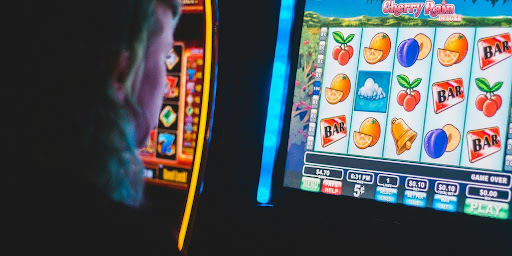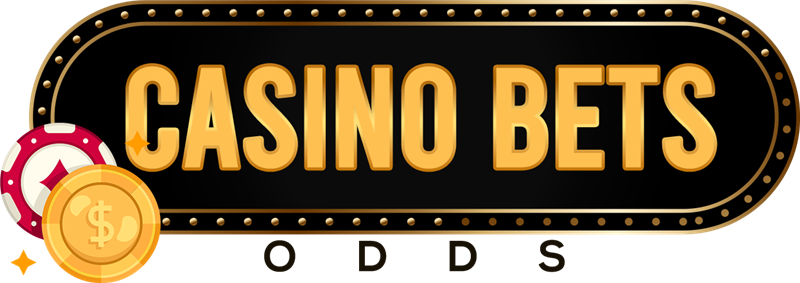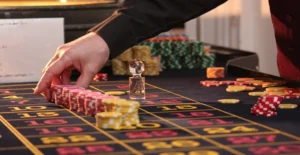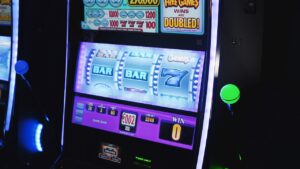Many players wonder if online blackjack is rigged, especially after a string of bad luck. It’s a common question, and the truth is, when you play at legitimate, licensed online casinos, the games are far from fixed. This article breaks down how online blackjack works, explains the systems in place to keep things fair, and offers tips to help you play safely and confidently, addressing those nagging doubts about whether online blackjack is rigged.
Key Takeaways
- Reputable online blackjack games are not rigged; they use Random Number Generators (RNGs) to ensure fair and unpredictable outcomes.
- Licensing and oversight from regulatory bodies are critical indicators of a trustworthy online casino.
- Independent audits by agencies like eCOGRA or iTech Labs verify the fairness and randomness of casino games.
- Understanding the house edge and Return to Player (RTP) percentages helps players grasp the game’s natural probabilities.
- Playing at licensed casinos, checking reviews, and using basic strategy are the best ways to protect yourself and enjoy online blackjack.
Is Online Blackjack Rigged? Breaking Down Common Player Concerns
It’s a question many players ponder, especially after a few rough sessions: Is online blackjack rigged? The short answer is no, not if you’re playing at a legitimate, licensed casino. However, it’s understandable why some players might feel that way. Losing streaks happen, and when they do, it’s easy to jump to the conclusion that the games are somehow fixed against you. Let’s break down some of those common player concerns and look at how online blackjack works.
Common Concerns Players Have
- Feeling like the deck is always against you: You might notice that after you get a good hand, the dealer suddenly pulls out a winning one, or you keep getting dealt low cards while the dealer hits 20s. This can feel like more than just bad luck.
- Suspicion about card shuffling: In a physical casino, you see the cards being shuffled. Online, it’s all done by software, leading some to wonder if the shuffle is truly random or if it’s manipulated.
- Unexplained losing streaks: Sometimes, no matter what strategy you employ, you just keep losing. This can lead to the thought, “Are online blackjack games rigged?”
Why These Concerns Arise
Blackjack, by its nature, involves streaks of both wins and losses. The house edge, while small in blackjack, means that over the long run, the casino is designed to profit. This inherent mathematical advantage can sometimes feel like rigging to a player experiencing a string of bad luck. It’s important to remember that even with a small house edge, individual sessions can swing wildly in either direction. The key is understanding that probability doesn’t guarantee short-term fairness, but rather long-term averages. If you’re looking for more information on how these games operate, checking out resources on online blackjack strategy can be helpful.
While it’s natural to question fairness when you’re on a losing streak, the reality is that reputable online casinos use sophisticated Random Number Generators (RNGs) to ensure every card dealt is random. These systems are regularly audited by independent third parties to verify their integrity. Therefore, the perception of rigging is usually a misunderstanding of probability and variance rather than actual game manipulation.
How Online Blackjack Works: RNGs and Fairness Explained
The Role of Random Number Generators (RNGs)
At the heart of every legitimate online blackjack game is a Random Number Generator, or RNG. Think of it as the digital equivalent of a perfectly shuffled deck of cards, but far more sophisticated. This is a piece of software that constantly generates numbers in a sequence that’s impossible to predict. When you play online blackjack, the RNG is what determines which card is dealt next. This technology is the bedrock of fairness in digital gambling. It means that no player, no casino operator, and no software developer can influence or predict the outcome of any given hand. Each card dealt is an independent event, completely separate from the last or the next. This is a key difference from some physical card games where, theoretically, card counting could influence outcomes, though that’s a skill few can master.
How RNGs Ensure Fairness
So, how does an RNG make things fair? It’s all about unpredictability. The algorithm used is designed to produce a statistically random sequence of numbers. These numbers are then translated into the cards you see on your screen. Because the sequence is random, every possible outcome for a hand of blackjack is equally likely at any given moment. This means that a string of wins or losses for a player is purely a matter of chance, not a sign of the game being manipulated. Reputable online casinos rely heavily on RNGs to provide a trustworthy gaming experience, and it’s a standard practice across the industry for games like online roulette and slots, too.
Independent Audits and Testing
While RNGs are the primary tool for fairness, the industry doesn’t stop there. To build even more trust, many online casinos and game developers submit their RNG software to independent testing agencies. These third-party auditors, like eCOGRA or iTech Labs, rigorously examine the RNG’s performance. They check to see if the numbers generated are truly random and if the game outcomes align with the expected probabilities over millions of simulated hands. If a game passes these tests, it gets certified, giving players extra assurance that the games are not rigged. You can often find these certifications displayed on the casino’s website, usually in the footer. This commitment to transparency is why playing at licensed and audited sites is so important for a secure online blackjack experience.
Understanding the House Edge
It’s important to remember that while online blackjack games are fair, they are still designed to give the casino a slight advantage over the long run. This is known as the house edge. For blackjack, this edge is typically very small, often less than 1%, especially when players use basic strategy. The house edge doesn’t mean you can’t win; it simply means that over an enormous number of hands, the casino is statistically likely to make a profit. It’s not a sign of rigging, but rather the built-in mathematical structure of the game that allows casinos to operate as businesses. Even with a house edge, skillful play can significantly improve your chances of winning in a session.
Regulation Matters: Licensing, Oversight & Independent Audits
When you’re playing online blackjack, it’s easy to get caught up in the game itself. But behind the scenes, there’s a whole system designed to keep things fair. This is where regulation, licensing, and audits come into play. Think of it like a referee and scorekeeper for the online casino world.
What is a Casino License?
First off, a license is basically permission from a government or official body for a casino to operate legally. Different countries and even different states within countries have their own licensing rules. For example, in the US, you’ll see licenses from places like the New Jersey Division of Gaming Enforcement or the Pennsylvania Gaming Control Board. If a casino doesn’t have a license from a recognized authority, it’s a big red flag. You should steer clear of any site that isn’t properly licensed.
Who Oversees Online Casinos?
Regulatory bodies are the watchdogs. They set the rules for how online casinos must operate, including how they handle player funds and, importantly, how they ensure their games are fair. These bodies are responsible for making sure casinos follow all the laws and regulations. They’re the ones who can step in if something seems off. It’s good to know that places like Malta and Gibraltar are known for having strict regulatory bodies in Europe.
The Role of Independent Audits
Even with a license and oversight, there’s another layer of checking: independent audits. These are done by third-party companies that specialize in testing gambling software. They look at things like the Random Number Generator (RNG) used in blackjack games to make sure it’s truly random and not manipulated. Companies like eCOGRA, iTech Labs, and GLI are well-known auditors. When a casino’s games are certified by these auditors, it adds a significant layer of trust. It means an unbiased group has looked at the games and confirmed they are fair. You can often find information about these licenses and audits at the bottom of a casino’s homepage. Checking for these credentials is a smart move for any player looking for a trustworthy place to play online blackjack.
Playing at a licensed and audited casino isn’t just about following the rules; it’s about protecting yourself as a player. It means there are checks and balances in place to make sure the games you’re playing are as fair as they can be.
Understanding the Numbers: RTP and House Edge in Online Blackjack

When you play online blackjack, you’ll hear a lot about the Return to Player (RTP) and the house edge. These aren’t just fancy terms; they’re key to understanding how the game works and why the casino usually has an advantage. Think of RTP as the flip side of the house edge. It tells you, on average, how much of the money wagered on a game is paid back to players over time. So, if a blackjack game has an RTP of 99.5%, it means that, theoretically, for every $100 wagered, $99.50 is returned to players as winnings. The remaining 0.5% is the house edge – the casino’s built-in profit margin.
What is the House Edge?
The house edge is the statistical advantage that the casino holds in any given game. It’s not about cheating; it’s a mathematical certainty built into the game’s rules. For blackjack, this edge is typically quite small, especially when players use basic strategy. A typical online blackjack game might have a house edge of around 0.5% to 1%, depending on the specific rules. This means that, over millions of hands, the casino expects to profit about 0.5% to 1% of the total amount wagered.
Understanding RTP in Blackjack
Return to Player (RTP) percentages are calculated over a vast number of simulated hands, not just your personal play session. While a 99.5% RTP sounds great, it doesn’t guarantee you’ll win 99.5% of your bets. You could have a winning session or a losing streak in the short term. The RTP is a long-term average. It’s important to find games with higher RTPs, as this means the house edge is lower, giving you a slightly better chance.
How Rules Affect the House Edge
Different blackjack variations have different rules, and these rules directly impact the house edge. For instance:
- Payout for Blackjack: A 3:2 payout for a blackjack is much better than 6:5. A 6:5 payout significantly increases the house edge.
- Dealer Stands on Soft 17: When the dealer must stand on a soft 17 (a hand totaling 17 with an Ace counted as 11), it lowers the house edge compared to when they hit.
- Doubling Down Rules: Being allowed to double down on any two cards, or only on totals of 9, 10, or 11, affects the odds.
- Splitting Pairs: Rules about re-splitting pairs or hitting split Aces can also alter the house edge.
RTP vs. House Edge: A Quick Comparison
| Feature | RTP | House Edge |
| Meaning | Percentage of wagers returned to players | Casino’s statistical advantage |
| Value | High is better for the player | Low is better for the player |
| Calculation | Average over millions of hands | Average over millions of hands |
It’s easy to get caught up in short-term results, especially after a few losing hands. However, remember that RTP and house edge are statistical averages. They don’t dictate the outcome of any single hand. Focusing on games with favorable rules and understanding these percentages can help you make more informed decisions about where to play and how much to bet, improving your overall blackjack odds.
Live Dealer vs. RNG Blackjack: Transparency Differences
When you play blackjack online, you’ll generally run into two main types of games: those run by a Random Number Generator (RNG) and those with a live dealer. Both have their own feel and perceived transparency, and it’s good to know the differences.
RNG Blackjack: The Digital Dealer
RNG blackjack games are entirely digital. A computer program, the RNG, dictates every card dealt. This technology is designed to be completely random, meaning no one, not even the casino, can predict or influence the outcome of any given hand. Think of it like a super-fast, digital shuffling machine that never gets tired. While these systems are rigorously tested and certified by independent bodies to ensure fairness, some players find it hard to trust a process they can’t physically see. It’s all code, and for some, that lack of visible action raises questions.
Live Dealer Blackjack: The Human Touch
Live dealer blackjack, on the other hand, brings a real person into the game. A professional dealer shuffles and deals physical cards from a studio, and the action is streamed to your device in real-time. This setup offers a visual element that many players find more reassuring. You can see the cards being dealt, the dealer interacting, and the whole process unfold. This direct observation often leads to a greater sense of trust and a more authentic casino atmosphere. However, it’s important to remember that even with a live dealer, the game is still governed by the same principles of chance and house edge as RNG games. The speed of play is also typically slower compared to RNG versions, as it needs to accommodate the human element and multiple players.
Perceived Transparency and Trust
Many players feel that live dealer games offer a higher degree of transparency simply because they can see the cards being dealt by a human. This visual confirmation can be very comforting. RNG games, while mathematically proven to be fair through audits, rely on player trust in the underlying algorithms. It’s a matter of preference: some prefer the tangible, visible process of live dealing, while others are comfortable with the statistically proven randomness of RNGs, especially when playing at a reputable online casino like those offering fair blackjack games.
Key Differences Summarized
- Pace: RNG games are much faster. Live dealer games are slower due to human interaction and dealing.
- Visuals: Live dealer games offer a real-time video stream of a physical table and dealer. RNG games are purely digital graphics.
- Interaction: Live dealer games allow for chat with the dealer and sometimes other players. RNG games are typically a solo experience.
- Trust Factor: Live dealer games often feel more trustworthy due to visible actions. RNG games require trust in certified algorithms.
Ultimately, both RNG and live dealer blackjack games are designed to be fair when offered by licensed and regulated online casinos. The choice between them often comes down to personal preference regarding the pace and the visual experience.
Common Misconceptions: Losing Streaks Aren’t Proof of Rigging

It’s easy to get caught up in the excitement of online blackjack, and sometimes, things just don’t go your way. You might hit a string of bad hands, or perhaps the dealer seems to get lucky more often than not. This can lead to a nagging feeling that the game is somehow rigged against you. But here’s the thing: a series of losses doesn’t automatically mean the game is unfair.
Think about it like this: every blackjack hand is an independent event. The cards you received last round have absolutely no bearing on the cards you’ll get next. It’s a bit like flipping a coin; if you get heads five times in a row, it doesn’t change the odds of getting tails on the next flip. The same principle applies to online blackjack, thanks to the Random Number Generators (RNGs) that shuffle the virtual decks. These systems are designed to produce random outcomes, just like a real-world shuffle.
Losing Streaks Are Just Probability
When you play blackjack, you’re up against the inherent probabilities of the game. Sometimes, those probabilities will align in your favor, and other times, they won’t. A losing streak is often just a manifestation of normal statistical variance. It’s easy to notice when you’re losing, but we tend to forget the times when we’ve had winning streaks, simply because they feel less remarkable.
The “New Player” Myth
Another common idea is that online casinos have a “new player win algorithm” that favors newcomers. The logic, as some see it, is that casinos want to hook new players with early wins. However, this doesn’t hold up. If such an algorithm existed and was detectable, players would exploit it by constantly creating new accounts. Licensed casinos have too much to lose from such practices; their reputation and operating licenses are on the line. Instead of a rigged system, it’s more likely that new players might be more cautious with their bets or perhaps just experiencing a lucky run, which is part of the game’s natural ebb and flow. You can find simulators that help illustrate how random outcomes work, which can be a good way to see the probabilities in action.
Misinterpreting RNG Outcomes
People sometimes believe that RNG games behave differently from physical ones, especially when it comes to betting patterns. For instance, some might think that increasing their bet size in an RNG game makes a loss more likely, or that a game is “cold” if it hasn’t paid out recently. This is a misunderstanding of how RNGs work. They don’t react to bet sizes or past outcomes. Each deal is a fresh start. While it’s true that the house always has an edge in blackjack, this is built into the game’s rules, not through rigged outcomes. Understanding the house edge and how to play with basic strategy is key to managing your expectations and enjoying the game responsibly. It’s always a good idea to check out resources that explain the math behind the games, like those found on wizardofodds.com/play/blackjack-v2.
It’s important to remember that while losing streaks can feel frustrating, they are a normal part of any game of chance. Focusing on playing strategically and understanding the probabilities involved will serve you much better than assuming the game is rigged.
Red Flags: How to Spot Potentially Rigged Blackjack Games
It’s natural to feel a bit uneasy if you’re hitting a string of bad luck at the blackjack table. Sometimes, things just don’t go your way, and that’s when questions about whether the game is rigged might pop up. While most online casinos operate fairly, it’s smart to know what to look out for. Being aware of potential warning signs can help you steer clear of less reputable sites and keep your gaming experience enjoyable and fair.
Unexplained Game Behavior
If a game seems to be acting strangely, that’s a red flag. For instance, if the cards dealt don’t seem to follow any logical pattern, or if you notice the same unfavorable outcomes happening repeatedly in a way that feels too consistent to be random, it’s worth paying attention. Sometimes, players report that when they increase their bet size, their chances of winning seem to drop significantly, which is not how a fair RNG should work. A truly random system shouldn’t be influenced by your bet amount.
Difficulty Withdrawing Winnings
This is a big one. If you manage to win and then find it incredibly difficult to cash out your money, that’s a major warning sign. Casinos that are legitimate and fair will have clear, straightforward processes for withdrawals. If you encounter excessive delays, unreasonable demands for documentation beyond what’s standard, or outright refusal to pay out winnings, it’s a strong indication that the site might not be on the up and up. Always check out customer reviews for insights into their withdrawal policies and experiences, as difficulty withdrawing winnings is a common complaint about scam sites.
Lack of Licensing and Audits
Reputable online casinos are transparent about their licensing and regulatory status. If a casino doesn’t display information about which authority licenses them, or if they don’t mention any independent audits of their games, be cautious. Licensed casinos are subject to strict rules and regular checks to ensure fairness. The absence of this information suggests they might be operating without oversight, which increases the risk of unfair practices.
Poor Customer Support and Reviews
How a casino handles player inquiries and complaints can tell you a lot. If customer support is unresponsive, unhelpful, or difficult to contact, it’s a bad sign. Similarly, if you look up reviews and find a pattern of complaints about unfairness, rigging, or unresolved issues, it’s best to avoid that casino. While a few negative reviews are normal for any business, a consistent stream of similar complaints is a clear warning.
Evaluating Game Providers: Why Reputation and Certification Count
When you’re looking for a place to play online blackjack, who makes the games matters. Think about it like choosing a restaurant; you want to go to one with a good reputation, right? The same applies to online casinos and the companies that provide their software. These game providers are the ones creating the blackjack experience you interact with, so their track record and how they operate are super important.
Reputable game providers are usually certified by independent testing agencies. This certification is a big deal because it means their games have been checked for fairness. It’s not just a claim; it’s a stamp of approval from a third party. These certifications often come from places like eCOGRA or iTech Labs, which are well-known in the industry for making sure games work the way they’re supposed to, without any funny business. You can usually find information about these certifications right on the casino’s website, often in the footer.
Here’s why paying attention to the provider is a smart move:
- Fairness and Randomness: Certified providers use Random Number Generators (RNGs) that have been tested and verified. This means the outcome of each hand is truly random and can’t be predicted or manipulated by the casino or the provider.
- Game Quality: Established providers invest in creating high-quality games. This means smoother gameplay, better graphics, and fewer technical glitches, which all add up to a more enjoyable blackjack session.
- Security: Companies with good reputations tend to have robust security measures in place to protect your personal and financial information. They have more to lose if something goes wrong.
It’s also a good idea to see what other players are saying. Online forums and review sites can give you a real sense of a provider’s history and how they handle issues. If a provider consistently gets bad reviews or has a history of unfair practices, it’s best to steer clear. For instance, if you’re looking for great blackjack options, checking out casinos that feature games from well-regarded developers is a good start. You can often find lists of top online blackjack casinos that highlight these providers, giving you a starting point for your research.
Choosing a game provider with a solid history and proper certifications is one of the most straightforward ways to ensure you’re playing fair online blackjack. It takes a little bit of effort up front, but it saves a lot of potential headaches down the line.
Testing the Waters: How to Trial Games with Small Bets

When you’re first checking out a new online casino or a specific blackjack game, it’s smart to start small. Think of it like dipping your toe in the water before you jump in. You don’t want to put a lot of money down right away, especially if you’re not sure about the game’s fairness or how it plays. Trying games with minimal bets lets you get a feel for the pace, the interface, and whether anything feels off, without risking a significant portion of your bankroll. This cautious approach is a good way to test the waters and build confidence before committing larger sums.
Start with Low Stakes
- Begin with the minimum bet allowed. Most online blackjack tables have a low minimum, often just $1 or $5. This allows you to play many hands without a large outlay.
- Observe the card flow. Pay attention to how cards are dealt. Do certain cards seem to appear too frequently or not at all in situations where they’d be expected?
- Test different game variations. If a casino offers multiple blackjack variants (e.g., classic, European, single-deck), try a few with small bets to see if one feels more favorable or transparent than others.
Look for Demo Modes
Many online casinos offer demo or practice modes for their games. This is a fantastic way to try out blackjack without any financial risk. You play with virtual credits, allowing you to understand the game mechanics, practice basic strategy, and get a feel for the casino’s software. It’s a risk-free environment to see if the game operates as expected. You can often find these options when you first load a game, before you even make a deposit, as mentioned on the casino setup pages.
Starting with small bets or demo modes isn’t just about saving money; it’s about gathering information. It allows you to observe patterns and assess the game’s behavior over a reasonable number of hands before you decide to invest more significantly. This proactive testing can save you from potential disappointment later on.
Track Your Small Wins and Losses
Even with small bets, keep a basic record of your results for a session. Note down how many hands you play, how many you win, and any significant streaks (good or bad). This isn’t about proving anything definitively, but rather about building your sense of the game’s typical performance. If you consistently see outcomes that seem highly improbable, even over a short session with small bets, it might be a signal to investigate further or move to a different game.
Protecting Yourself: Research, Reviews & Customer Support
Check for Licenses and Certifications
When you’re looking for a place to play online blackjack, the first thing you should do is check if the casino has a proper license. Think of it like a seal of approval. Reputable licensing bodies, like those in Malta or Gibraltar, put casinos through rigorous checks to make sure they’re playing fair and keeping your information safe. You can usually find this license information right at the bottom of the casino’s homepage. If you can’t find it or if it looks sketchy, it’s best to steer clear. Playing at unlicensed sites is just asking for trouble.
Read Player Reviews and Forums
Don’t just take the casino’s word for it. See what other players are saying. Websites and forums dedicated to online gambling often have honest discussions about different casinos. Look for patterns in reviews – are people consistently complaining about slow payouts, poor customer service, or weird game behavior? On the flip side, positive reviews from multiple sources can be a good sign.
Understand RNGs and Independent Audits
Reputable online casinos use Random Number Generators (RNGs) to make sure every card dealt is random and unpredictable. This is the same technology used in many other online games. To be extra sure, many of these casinos also have their games checked by independent auditors, like eCOGRA or iTech Labs. These auditors verify that the RNG is working correctly and that the games aren’t rigged. Seeing that a casino has these certifications adds another layer of trust.
Contact Customer Support
Before you even deposit money, try reaching out to the casino’s customer support. Ask them a question about their licensing, their RNGs, or even a simple query about a game. How quickly and how helpfully they respond can tell you a lot about their commitment to their players. If they’re slow, unhelpful, or can’t answer basic questions, it might be a sign that they’re not a top-tier operation.
Gaming Safely: Choosing Licensed and Audited Casinos Only
Verify Licensing and Regulatory Approval
When you’re looking to play online blackjack, the first and most important step is to confirm that the casino you’re considering is properly licensed and regulated. Think of a license as the casino’s official stamp of approval, indicating it meets strict standards for fair play, player protection, and financial security. Without a license, you’re essentially playing at an unregulated site, which significantly increases the risk of encountering unfair games or not being able to withdraw your winnings. Always check the casino’s website, usually found at the very bottom of the homepage, for details about their licensing authority. Reputable regulators include bodies like the Malta Gaming Authority, the UK Gambling Commission, or specific state regulators within the US, depending on your location. Playing at a licensed casino is your primary defense against rigged games.
Look for Independent Audits and Certifications
Beyond just having a license, a truly trustworthy online casino will also submit its games to regular testing by independent third-party auditors. These auditors, such as eCOGRA, iTech Labs, or GLI, specialize in verifying that the Random Number Generators (RNGs) used in the games are truly random and that the game outcomes are fair. Seeing certifications from these bodies on a casino’s website provides an extra layer of assurance that the blackjack games are not manipulated. It shows the operator is transparent and committed to providing a fair gaming environment. You can often find links to these audit reports or certification logos on the casino’s ‘About Us’ or ‘Fairness’ pages.
Read Player Reviews and Forum Discussions
While official certifications are important, real player experiences can offer practical insights into a casino’s reliability and fairness. Before depositing any significant amount of money, take some time to read reviews on independent player forums and review sites. Look for patterns in player feedback regarding game fairness, payout speeds, and customer support responsiveness. If multiple players report issues with game outcomes, slow payouts, or unresponsive support, it’s a strong signal to avoid that particular casino. Conversely, consistently positive reviews can build confidence in a casino’s integrity. It’s also helpful to check out expert reviews from sites that focus on the gaming industry, as they often provide a more in-depth analysis. You can find many such reviews on CasinoAllianz.
Understand Responsible Gaming Tools
Reputable online casinos are committed to responsible gaming. This means they offer tools that allow players to manage their gambling activity effectively. Look for features such as:
- Deposit Limits: Setting a maximum amount you can deposit within a specific period (daily, weekly, or monthly).
- Loss Limits: Capping the amount you can afford to lose over a set timeframe.
- Session Time Limits: Allowing you to set a maximum duration for your gaming sessions.
- Self-Exclusion: The option to temporarily or permanently exclude yourself from playing.
Casinos that provide these tools demonstrate a commitment to player welfare, which often goes hand-in-hand with fair gaming practices. If a casino doesn’t offer these basic responsible gaming features, it might be a sign that they are not as focused on player protection as they should be.
Optimizing Your Odds: Use Basic Strategy and Choose Favorable Rules
While no amount of strategy can overcome the inherent house edge in blackjack, employing basic strategy and understanding favorable rules can significantly improve your odds and prolong your playing sessions. It’s about making the most mathematically sound decision for every hand you’re dealt.
Understanding Basic Strategy
Basic strategy is a mathematically derived set of rules that tells you the optimal way to play any hand in blackjack, based on your cards and the dealer’s upcard. It minimizes the house edge to its lowest possible point. For instance, always hit a hard 11 or less, and always stand on a hard 17 or more. Decisions for hands between 12 and 16 against a dealer’s 7 or higher are particularly important – you should generally hit in these situations.
Key Basic Strategy Decisions:
- Hard Totals: Always hit a hard 11 or less. Stand on a hard 17 or more. For hard totals between 12 and 16, hit if the dealer shows a 7 or higher, and stand if the dealer shows a 2 through 6.
- Soft Totals: A soft hand includes an Ace counted as 11. With a soft 17 (Ace-6), you should always hit. With a soft 18 (Ace-7), you should stand if the dealer shows a 6 or less, and hit if the dealer shows a 7 or 8. For other soft totals, you generally hit.
- Pairs: Always split Aces and 8s. Never split 5s or 10s. For other pairs, the decision depends on the dealer’s upcard.
Choosing Favorable Rules
Beyond basic strategy, the specific rules of the blackjack game can impact the house edge. Look for games that offer better player-friendly rules. The fewer decks used, the lower the house edge generally is.
Here are some rules to look for:
- Blackjack Payout: A 3:2 payout for a blackjack is significantly better than 6:5. A 6:5 payout increases the house edge considerably.
- Dealer Hits or Stands on Soft 17: Games where the dealer stands on all 17s (including soft 17) are more favorable to the player than those where the dealer hits on soft 17.
- Doubling Down: The ability to double down on any two cards, or specifically on totals of 9, 10, or 11, is advantageous.
- Splitting: Being allowed to re-split pairs after an initial split, and being able to hit split Aces, can also reduce the house edge.
By understanding and applying basic strategy and by carefully selecting games with favorable rules, players can significantly improve their chances of winning and reduce the impact of the house edge. It’s about playing smarter, not just playing more.
Remember, even with optimal play, blackjack still has a house edge. However, by making informed decisions, you can make your bankroll last longer and enjoy the game more. For a deeper dive into strategy, resources like blackjack strategy guides can be very helpful.
Online Blackjack Is Not Rigged—When You Play Smart and Stay Alert
It’s completely understandable why some players might wonder if online blackjack is rigged, especially after a few tough sessions. Losing streaks happen, and it’s easy to jump to conclusions. However, the reality for most players is that online blackjack isn’t fixed against you, provided you’re playing at a legitimate, licensed casino. These operations are under strict oversight and regularly checked by independent auditors to make sure their games are fair. The core of fair online blackjack lies in Random Number Generators (RNGs). These are sophisticated software programs that ensure every card dealt is random and unpredictable. This technology means that no one, not the casino, not the player, can influence the outcome of a hand. It’s a level of randomness that’s more consistent than what you might find in some live settings. So, while the house does have an edge – that’s just how casino games work – it doesn’t mean the games are rigged. It simply means that over a vast number of hands, the casino is statistically likely to profit.
Playing Smart and Staying Safe
To enjoy online blackjack with confidence, focus on playing smart and staying alert. This means choosing reputable casinos, understanding how the games work, and managing your bankroll effectively.
- Choose Licensed Casinos: Always play at casinos that hold valid licenses from recognized gaming authorities. This is your primary safeguard. You can often find licensing information in the casino’s footer.
- Understand the House Edge: Be aware that every casino game has a house edge. In blackjack, this is relatively low, especially with good play, but it exists. It’s not rigging; it’s the built-in statistical advantage for the casino.
- Read Reviews and Check Providers: Look for casinos that use games from well-known software providers and have positive player reviews. Checking for independent audits from agencies like eCOGRA or iTech Labs adds another layer of trust.
Debunking Common Myths
Many worries about rigged games stem from common misconceptions. For instance, the idea that a losing streak is proof of rigging is simply not true. RNGs ensure that each hand is independent; past results have no bearing on future outcomes. Similarly, the belief that live dealer games are inherently more secure than RNG games is often unfounded. Both are designed to be random and fair when operated by licensed providers.
The key takeaway is that legitimate online blackjack offers a fair chance of winning. The house edge is a statistical reality, not a sign of manipulation. By focusing on licensed operators and understanding the game’s mechanics, you can enjoy the thrill of online blackjack without undue suspicion.
Ultimately, responsible play and informed choices are your best defense against any perceived unfairness. Stick to licensed platforms, understand the odds, and manage your expectations. This approach ensures you’re playing a fair game, not one that’s secretly stacked against you. If you’re looking for strategies to improve your game, consider resources that explainnbasic blackjack strategy.
Frequently Asked Questions
Is online blackjack rigged?
No, online blackjack games are not rigged if you play at a licensed and regulated casino. These casinos use special computer programs called Random Number Generators (RNGs) to make sure every card dealt is random and fair. Reputable casinos also have their games checked by independent groups to ensure everything is honest.
What is the house edge in online blackjack?
The house edge is a small advantage built into casino games, including blackjack, that helps the casino make money over time. For example, a 0.5% house edge means that for every $100 bet, the casino expects to keep $0.50 on average. This doesn’t mean you can’t win; it just means the casino has a slight advantage in the long run.
How do Random Number Generators (RNGs) ensure fairness?
Random Number Generators (RNGs) are computer programs that create unpredictable sequences of numbers. In online blackjack, RNGs decide which cards are dealt, making the game random and fair. This technology ensures that no one, not even the casino or the player, can predict or control the outcome of a hand.
Why is it important to play at licensed online casinos?
Playing at casinos licensed by official authorities is crucial. These licenses mean the casino follows strict rules for fair play and player protection. Always check for a license from a recognized gaming commission before you play.
Can losing streaks mean the game is rigged?
While losing streaks can feel unfair, they are usually just a result of chance. Because blackjack involves randomness, you will have periods where you lose more often. This doesn’t mean the game is rigged; it’s just how probability works in games of chance.
How can I spot a potentially unfair online blackjack game?
Look for casinos that are licensed, have positive player reviews, and work with well-known game providers. Also, check if their games have been tested by independent auditors like eCOGRA or iTech Labs. Avoid casinos that lack transparency or have many complaints.
Can I practice online blackjack for free?
Yes, you can practice online blackjack for free at most casinos. This lets you learn the rules and practice strategies without risking your own money. It’s a great way to get comfortable with the game before you start betting.
Is live dealer blackjack more trustworthy than virtual blackjack?
Live dealer blackjack offers a more visual experience since you can see a real person dealing the cards. However, both live dealer and RNG blackjack games in licensed casinos are designed to be fair and random. RNG games are often faster, while live dealer games provide a more social feel.
Daniel Chase is a seasoned casino analyst and iGaming writer with over 10 years of experience in the online gambling industry. He specializes in game strategy, casino odds, and player-focused reviews. Daniel is passionate about helping players make smarter decisions through transparency, real data, and honest insight.











